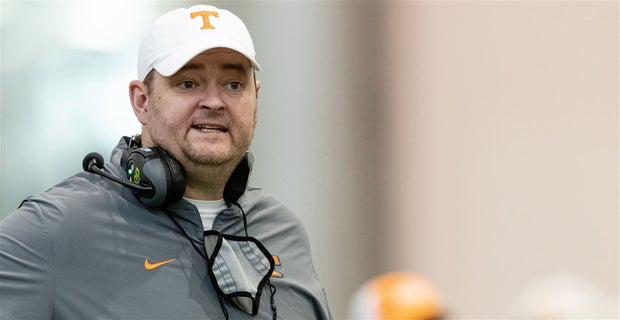It is now official: Coaching matters.
Professor Christopher R. Berry and Associate Professor Anthony Fowler of the University of Chicago did not hand down an opinion on whether Nick Saban is worth what Alabama pays him but their study found that leadership matters in sports.
“Coaches are often credited for their team’s success or blamed for their team’s failure,” said Berry. He added that they are paid as if they are the most valuable assets.
Berry said coaches matter more in college football than in the pros.
“They significantly affect points scored, points allowed, point differential and victories.”
We could have saved a lot of research time and money and explained that points scored and points allowed lead almost directly to point differential.
From personal observation, we could have recited how Bill Snyder once upon a time moved Kansas State from below zero to championship contender. After he retired and the Wildcats regressed, Bill came back and won again.
There is some evidence that Saban is a more productive coach than was Derek Dooley or Butch Jones is.
This season is proof positive that Josh Heupel is a more effective coach than was Jeremy Pruitt. It’s too early to tell if Heupel will become what Doug Dickey was. We are reasonably certain Josh will not match the record of Robert R. Neyland – but he might. Hopefully, his career won’t be interrupted two or three times for military duty.
The Chicago scholars analyzed many seasons of data, including wins and losses and scores and statistics, and eventually estimated that coaches account for 20 to 30 percent of the variation in team outcomes.
They were a wee bit vague of what coaches actually do? I’ll help. They establish a sense of direction, adjust the culture to fit, chart a specific course, create strategy, major in motivation and figure out the parameters of strength and conditioning. Some copy established fundamentals. Some try to reinvent the wheel.
Coaches hire assistant coaches. Some are so daring as to seek help that is smarter than they are.
Coaches help sell tickets, perform on TV for extra pay, endorse sponsors’ products, interact with rich donors, influential alumni, former players and faithful fans – in that order, more or less.
When all that is accomplished, they focus on development of available talent. They have the final say on personnel decisions such as who is going to play quarterback.
After that, they do what is really important, recruit.
What we have seen in Heupel is an abundance of positive reinforcement. Everything is good or better. Never has he thrown a player under the bus, not even Joe Milton when he was overthrowing open receivers in the end zone.
Players obviously appreciated Heupel’s dependable support. They responded with sincere effort. They never gave up the fight, even in games that became out of reach.
Heupel arrived at Tennessee with confidence and optimism. It seemed genuine.
“From the moment I got here, I never placed a ceiling on what our football team could do. You’ve heard me say it, that we’re in a race against ourselves.”
The beginning outlook was bleak. He could have used that as an alibi. That isn’t who he is. He expects to win. This is contagious.
It has been said that great things are rarely accidents. They are achieved because of great expectations.
“I’m here because I believe we can chase championships at Tennessee,” Heupel said back in January. He did not bother to count how many former Vols fled through the transfer portal when Pruitt was dismissed.
It helps that 2021 was not Josh Heupel’s first rodeo. He played at a championship level as the Oklahoma quarterback. He experienced the feeling of “almost” that goes with finishing second in Heisman voting.
It helped that he had been a head coach before accepting responsibility for the Tennessee reconstruction project. It helped that he is not a natural-born egotist, that he does not overlook the roles of others.
From a distance, it appears he respects the hired help. Assistant coaches are allowed to speak. They actually have assigned talking times. That greatly enhances their chances of becoming identifiable somebodies, head coaches if that is their goal.
I agree with the basics of the Chicago study. Coaches do matter. They matter more if they are smart.
Marvin West welcomes reader comments or questions. His address is marvinwest75@gmail.com.

